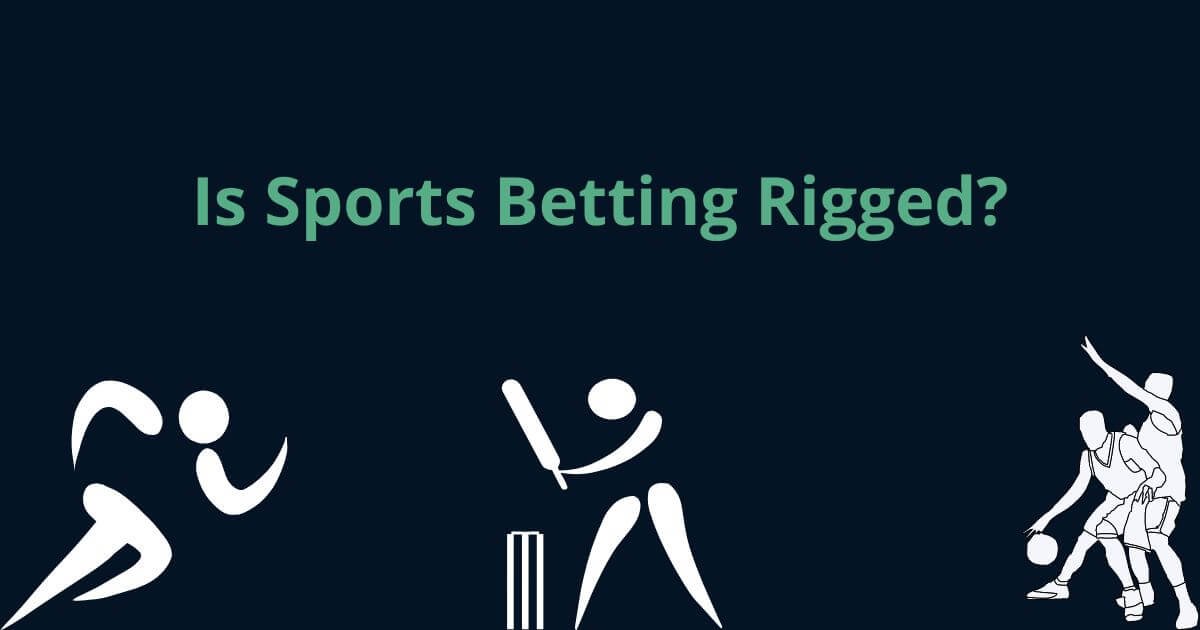Sports betting has become a popular activity for many enthusiasts who enjoy the thrill of predicting outcomes and potentially winning money. However, a persistent question lingers: Is sports betting rigged? In this blog post, we will delve into this controversial topic and provide expert analysis to help you better understand the nature of sports betting.
Understanding the Sports Betting Industry
The sports betting industry is a vast and complex ecosystem that involves bookmakers, sportsbooks, and bettors. Bookmakers play a crucial role in setting odds and adjusting them based on various factors, such as team performance, player injuries, and public sentiment. These odds reflect the bookmakers’ assessment of the likelihood of different outcomes.
Regulations and Licensing
To ensure fairness and integrity in sports betting, regulatory bodies have been established in various jurisdictions. These bodies enforce rules and regulations that licensed operators must follow. By obtaining a license, operators are held accountable for their actions and are subject to regular audits to ensure compliance with industry standards.
Sports Betting Integrity Measures
Sports betting integrity is of paramount importance in maintaining the integrity of sports competitions. Sports governing bodies and associations collaborate with bookmakers and sportsbooks to prevent match-fixing and fraud. Advanced monitoring systems, including data analysis and algorithms, help detect suspicious betting patterns and irregularities.
Statistical Probability and Variance
When examining the question of whether sports betting is rigged, it is essential to consider statistical probability and variance. Bookmakers set odds based on their assessment of the teams’ abilities, but they also incorporate a profit margin. It is the inherent randomness and unpredictability of sports that create variance, leading to both wins and losses for bettors.
Debunking Common Misconceptions
Many misconceptions surround the idea of rigged sports betting. One common belief is that bookmakers manipulate outcomes to favor certain bets or teams. However, reputable bookmakers have no incentive to rig results, as their profit comes from collecting a commission, known as the “vig” or “juice,” regardless of the outcome. Moreover, the competitive nature of sports makes it nearly impossible to manipulate every aspect of a game.
Cases of Sports Betting Scandals
While sports betting scandals have occurred throughout history, they are relatively rare compared to the vast number of legitimate sports events. Instances of match-fixing and rigging involve a small fraction of games and typically lead to severe consequences for those involved. The sports industry and regulatory bodies take strong measures to combat such incidents and maintain the integrity of the games.
Summary
In summary, the notion that sports betting is rigged is largely a misconception. The sports betting industry operates within a regulatory framework, with licensed operators and integrity measures in place to ensure fairness. The randomness and variance inherent in sports outcomes make it challenging to manipulate results systematically. While isolated cases of scandals have occurred, they are the exception rather than the rule.
As you engage in sports betting, it is crucial to approach it responsibly, conduct thorough research, and understand the risks involved. Remember that successful betting requires a combination of skill, knowledge, and a bit of luck. By doing your due diligence, you can enjoy the excitement of sports betting with confidence.
We hope this expert analysis has shed light on the topic of sports betting rigging and provided you with a clearer understanding of the industry. Happy betting!
Note: It’s important to keep in mind that this is a generated blog post, and while the information provided is based on general knowledge, it may not reflect the most up-to-date information or specific insights from current events.




